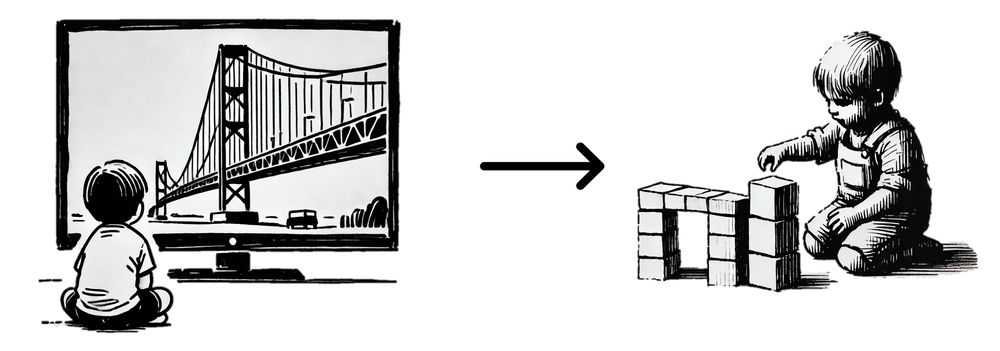
🗣️ICML Poster West Exhibition Hall, 16 Jul, 11a.m. PDT, No. W-707
📜arxiv.org/abs/2503.01584
🌐sites.google.com/view/sensei-paper
Work done with @cgumbsch.bsky.social (co-first), @zadaianchuk.bsky.social, @pavelkolevbg.bsky.social and @gmartius.bsky.social
8/8
🗣️ICML Poster West Exhibition Hall, 16 Jul, 11a.m. PDT, No. W-707
📜arxiv.org/abs/2503.01584
🌐sites.google.com/view/sensei-paper
Work done with @cgumbsch.bsky.social (co-first), @zadaianchuk.bsky.social, @pavelkolevbg.bsky.social and @gmartius.bsky.social
8/8
7/8

7/8
6/8
6/8
5/8
5/8
4/8

4/8
Our approach is to use human priors found in foundation models. We extend MOTIF to VLMs: A VLM compares observation pairs, collected through self-supervised exploration. This ranking is distilled into a reward function.
3/8

Our approach is to use human priors found in foundation models. We extend MOTIF to VLMs: A VLM compares observation pairs, collected through self-supervised exploration. This ranking is distilled into a reward function.
3/8
Children solve this by observing and imitating adults. We bring such semantic exploration to artificial agents.
2/8

Children solve this by observing and imitating adults. We bring such semantic exploration to artificial agents.
2/8

